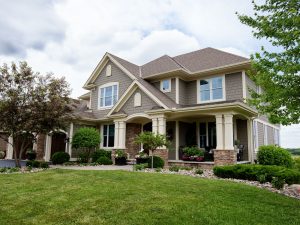Owning a home is still a dream for many Americans. Some 89 percent of millennials in the United States want to own a house.
When people take the plunge into homeownership, one of the expenses that usually comes to mind first is mortgage payments. Mortgage, however, is just one expense. You also need to be aware of other additional home-related costs, so you can avoid financial surprises and budget accordingly.
Here are potential ongoing and one-time costs of homeownership that you need to know before you start house hunting:
1. Home Insurance Maintaining a homeowner’s insurance is a smart idea, even if you purchased your residential property outright. This type of insurance can cover catastrophic events, such as fire and hurricane. You typically pay home insurance every month.
Maintaining a homeowner’s insurance is a smart idea, even if you purchased your residential property outright. This type of insurance can cover catastrophic events, such as fire and hurricane. You typically pay home insurance every month.
Take note that basic homeowner insurance policies don’t have wide coverage. If the house you want is in a flood-prone area, your lender may require you to purchase a separate flood insurance policy. When getting a home insurance quote, check the local agent for the required and optional types of homeowner’s insurance policies. This will give you an idea of what to expect in your local housing market.
2. Private Mortgage Insurance (PMI)
You may have to pay this type of insurance if you put down less than 20 percent in your down payment. PMI safeguards the lender if you default on your home loan and your residential property goes into foreclosure.
There are also circumstances wherein you may need to pay PMI even if your down payment goes beyond 20 percent. One scenario is when you’ve gone through a foreclosure or bankruptcy before getting your new mortgage. Another scenario is a low credit score.
Private mortgage insurance will usually cost you anywhere between 0.5 to 1 percent of your total loan amount per year. The common way of paying your PMI is to pay for this as part of your monthly home loan amount.
3. Property Taxes
The amount of property tax you’ll pay will depend on two things: your community services and the value of your residential property. This tax is often part of your monthly mortgage payment. If you are unsure how much your local property tax rate is, get in touch with the assessor’s office in your county.
If you’re planning to buy a house, make sure that your budget can accommodate rises in property taxes, as the amount may increase if your house goes up in value over time. Check the comparable houses in your area to determine if tax increases are common.
4. Utilities
When you own your home, you’ll need to pay the bill for electricity, water and other utilities. When you’re doing house hunting, you should ask the seller for copies of the utility bills from the previous months. This will, you’ll have an idea of what they paid before you say yes to a home offer. Take note, though, that the cost of your utilities will depend on personal use, such as how long you shower and how cool or warm you keep your house.
5. Home Repairs
Unfortunately, repair expenses are difficult to plan for and predict. Although a homeowner’s insurance will typically cover repair expenses from natural disasters, such as earthquakes and floods, you may still have to meet the deductible and pay out-of-pocket for the excess expenses.
Some common and costly house repairs include basement waterproofing, replacements of septic tanks and roofing system repairs. Keep in mind that having a home insurance policy isn’t enough. You should also maintain an emergency fund, so you have the money to pay for these unforeseen repairs.
6. Home Maintenance
When you’re a homeowner, you’ll need to fork out cash to maintain your residential property. A few of the maintenance costs that you’ll face as a homeowner are servicing your HVAC systems, cleaning your rain gutters and keeping your yard in good shape.
Although you have the option to perform home maintenance on your own, doing so requires time and skill, as well as material costs. If you do hire professionals or contractors for maintenance work, you’ll need to be aware that labor often comes with a hefty price tag.
7. Appliances
Some appliances, such as an oven and a dishwasher, may be part of the home sale price. You, however, may be responsible for purchasing portable appliances, such as food processors, toasters and coffee machines. If you are purchasing an older house and some included appliances are on their final leg, you’ll want to replace them, as well. This, however, will cost you money.
Monthly mortgage payments aren’t the only expense you should worry about when you buy a home. Keep these other additional costs in mind. By understanding the common homeownership expenses beyond the home loan, you’ll be able to pick a house that aligns well with your lifestyle and budget needs.










